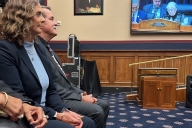You have /5 articles left.
Sign up for a free account or log in.
A computer science professor at the University of Wisconsin-Whitewater, feeling isolated and alienated in a department where he was a poor fit, referred to the 2007 shootings at Virginia Tech in a conversation with colleagues who already found him hostile.
A senior history major at Aurora University, in a dispute with a professor teaching a required course, allegedly made a threatening comment that included a reference to both the Virginia Tech shootings and those in 2008 at Northern Illinois University.
In both cases, the reaction was quick and severe: the student and professor were barred from their respective campuses. The universities called in law enforcement officers to search their homes. In response, both individuals filed legal complaints.
Four years have passed since five faculty members and 28 students, including the shooter, died in the Virginia Tech massacre. But as these recent incidents indicate, the tragedy still reverberates on campuses around the country, and even the mention of the shootings is enough to prompt swift disciplinary and police action. The outcome in court may help determine whether that continues to be the case. (Note: This paragraph is corrected from an earlier version that misstated the number of students killed.)
"A mere reference to Virginia Tech shouldn’t lead somebody to be thrown off campus,” said Ann Franke, a consultant who advises campuses on security issues. “There’s just no hard and fast rules other than that the unique circumstances of each situation should be analyzed in some detail.”
The facts of the two cases differ, and -- since officials at both UW-Whitewater and Aurora declined to comment, citing the continuing personnel, disciplinary and legal matters -- many are in dispute, including exactly what was said in each case and whether it was meant as a threat at all.
In the case of Charles Shi, the UW-Whitewater computer science professor, his representative, Richard Schauer, says the complaint about his mention of the shootings was the apex of a campaign of bullying and alienation conducted by other professors within his department. (In a coincidental twist, Schauer, who represents professors throughout the University of Wisconsin system through the American Federation of Teachers’ Academic Freedom and Tenure committee, is a former chairman of Shi’s department, although he left before Shi was hired.)
Shi, who is originally from China, was hired into a tenure-track position by UW-Whitewater in 2008, after finishing his Ph.D. at Clemson University, and quickly began publishing peer-reviewed papers, Schauer said. Beginning in 2009, he clashed with other faculty members; when they inquired about his religion, for example, he replied that he respected “every culture’s right to their own mythologies,” Schauer said. Shi is not a native speaker of English and might not have realized that the word "mythologies" would be insulting, but other department members thought it was, he said.
Schauer argues that Shi's colleagues in the department were unnerved by the young professor’s productivity, and felt threatened by his potential to rise to a leadership position. “When you bring a person into a department who is different from the average racially, or possesses talents beyond the average of the members of that particular division or department, they will sometimes regard the individual as a virus and conceive of themselves as antibodies,” Schauer said. “It’s a well-known phenomenon in academia.”
Shi felt alone and persecuted, and the climate was bad enough that he approached Schauer before problems with the university arose about representing him should he file a grievance, Schauer said. “He believed he was being unfairly treated and isolated.... He trusted very few people.”
In a conversation with another colleague, Shi made the remark about Virginia Tech, saying he hoped he would not be treated like Seung Hui-Cho, the shooter, Schauer said. (The UW-Whitewater student newspaper, The Royal Purple, quoted a more ominous variation based on court documents: “If I continue to get pushed too hard, this will turn out like Virginia Tech.”)
After the remark, whatever it actually was, Shi was confronted by a campus police officer and agents from the Federal Bureau of Investigation and Department of Homeland Security, Schauer said. They searched his home, office, car and computer, eventually concluding that Shi posed no threat. But, citing that incident as well as problems with students and teaching, the university did not reappoint him during a periodic review, and forbade him to come to campus, Schauer said.
UW-Whitewater does not comment on personnel matters or pending litigation, the assistant director of marketing media relations, Jeff Angileri, wrote in an email.
Shi filed a petition for judicial review of the decision not to reappoint him and has since filed a complaint with the Equal Rights Division of the state labor department, which Schauer said he and Shi believe is the forum in which the complaint should be addressed.
Andrea Kleppe, the Aurora University student who has sued for defamation and emotional distress, was told in April 2010 that she would no longer be allowed to enter the campus or complete her coursework, although she would receive a diploma in “general studies,” according to Kleppe’s suit filed in Kane County, Ill.
Aurora police were sent to search Kleppe’s home for weapons after she threatened a history professor, referencing the shootings at both Virginia Tech and nearby Northern Illinois, the Chicago Tribune reported Tuesday.
Kleppe says in her suit that she never threatened the professor, although she acknowledged that the two had not always gotten along: the professor previously gave her a "D," but she appealed the grade and was retaking the course. A few weeks before she was told not to come back to campus, she had met with the professor to complain that a class assignment — watching "The Tudors," an HBO series based on the reign of Henry VIII — had no academic merit. In the suit, she said she believed the professor lied to the university about the threat.
The university does not comment on pending litigation, said Steven McFarland, vice president for university communications, in an e-mail.
In general, when dealing with threats, colleges should follow up thoroughly, Franke said, including getting more detail from the person who was threatened and trying to determine the mental state of the student or professor who made the remark, as well as his or her capacity for violence. Many colleges have set up threat assessment teams to deal with such circumstances, and usually they do not overreact, she said.
UW-Whitewater campus police received training in threat assessment in recent years, according to a newsletter from the department. Aurora also has such a team, according to its emergency operations plan.
“I think you err on the side of safety,” Franke said. “But that doesn’t mean you skip any analysis of the individual circumstances.”






![First text message: "Yes?" Second message: "This is embarrassing to say, but law school isn't fair for us men, the women are always outperforming us at [sic]. It's obvious women are taking over the legal profession nowadays." Third text: "Who is this?"](/sites/default/files/styles/image_192_x_128/public/2024-09/Text_messages_law_2.jpg?itok=0QWP419B)

